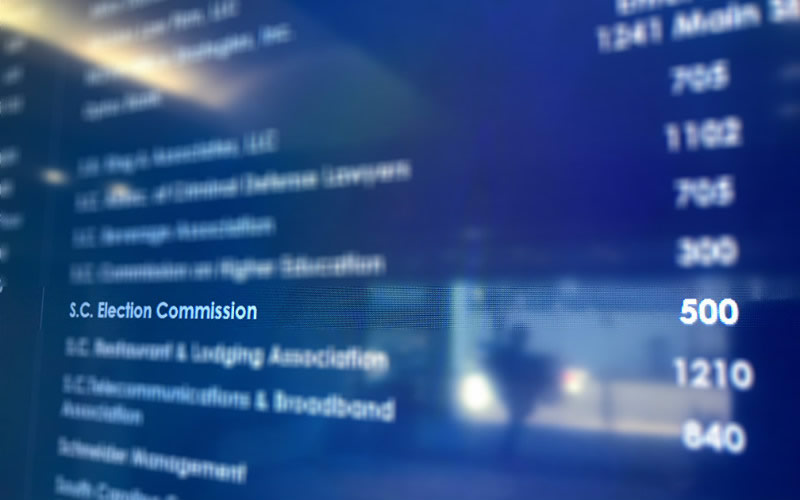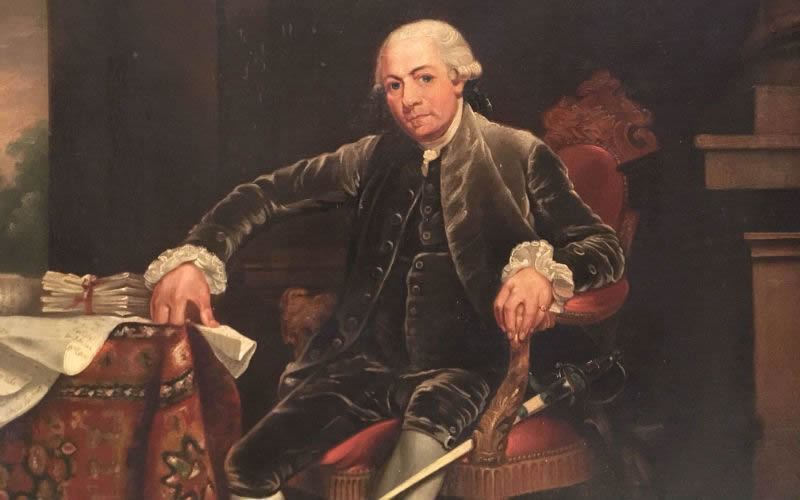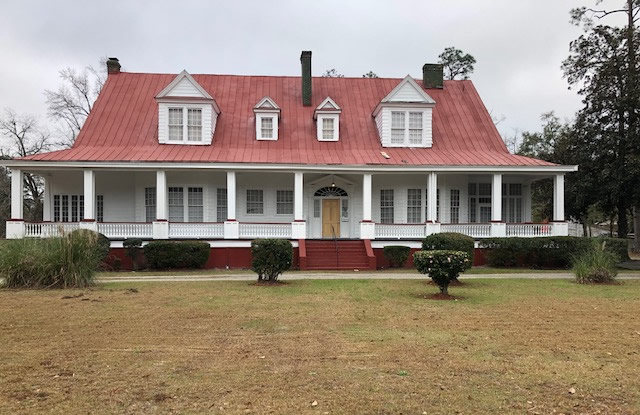INSIDE ISSUE 18.07 | FEB. 15, 2019
NEWS: S.C. undecided on new voting system, but rushing to find one
BRIEFS: Solar compromise, rising health care costs, more
TALLY SHEET: Changes introduced on alimony, judicial selection, more
COMMENTARY, Brack: Don’t miss the opportunity for education reform
SPOTLIGHT: SC WREN
MY TURN, Waters: S.C. schools won’t succeed until we help families
FEEDBACK: Pass the ERA
MYSTERY PHOTO: Who’s this old guy?
S.C. ENCYCLOPEDIA: Reformed Episcopal Church
S.C. undecided on new voting system, but rushing to find one

By Lindsay Street, Statehouse correspondent | Just how voters cast ballots in 2020 will depend on the next few months, but one thing is certain: there will be a paper record of some kind.
There’s a rush to get new machines before the 2020 presidential primaries next February.
“Our system is old. It’s not going to keep working forever and elections are too important to wait for the system to fail,” state Election Commission spokesman Chris Whitmire told Statehouse Report. “The standard today is to have a paper record of every ballot cast.”
The state Election Commission is currently taking bids from companies expected to come up with a new statewide system that has a paper feature. The state Election Commission says it will implement the new system before the 2020 presidential primaries where South Carolina has emerged as a key state for the crowded Democratic field.
Meanwhile at the Statehouse, House budget writers are poised to cut a check to the commission for tens of millions of dollars as lawmakers weigh six bills (see at end of story) that would direct the type of systems that the state can purchase.
Further complicating the purchase, there’s also a controversy brewing.
Advocates such as Lynn S. Teague of the League of Women Voters of South Carolina have raised concerns over alleged ties by Marci Andino, the commission’s executive director, to the state’s current system’s vendor, Elections Systems and Software (ES&S). Andino serves on a panel of elections directors with the company, and is given plane fare and hotel stays for her participation.
Whitmire said he would question a state election director that didn’t serve on such a panel, which he said helps to provide insight into the system. He told Statehouse Report: “The implication that our decision or our direction on how to move forward would be affected by a plane ticket and a hotel room to learn about our voting system is doubly insulting.”
Current system is a mess, League says
The challenge with today’s voting machines isn’t just that the system is old, good governance advocates say. They say the current system is buggy and prone to hacking. And they worry the Election Commission will go with a system that has an unnecessary steep price tag and will remain worrisome even with new machines.
 As vice president for issues and action for the League of Women Voters of South Carolina,Teague said the state needs public hearings on whatever system goes into effect. But that’s a process that won’t happen with a bid purchase through the Election Commission, Whitmire said.
As vice president for issues and action for the League of Women Voters of South Carolina,Teague said the state needs public hearings on whatever system goes into effect. But that’s a process that won’t happen with a bid purchase through the Election Commission, Whitmire said.
South Carolina’s voting machine challenges date to the days after the 2000 presidential elections when “hanging chads” became a buzzphrase for ballot-counting dysfunction in Florida. A few states, including South Carolina, went with a paperless ballot system in an effort to eliminate voter-caused issues such as over-voting or incomplete voting.
But a report of the November 2018 election by the League found “major flaws” in mistabulated votes or unrecorded votes in South Carolina on the current system.
Advocates also say the lack of a paper trail makes the state prone to election hacking and system errors. However, a federal judge recently tossed a lawsuit this month that claimed the state’s machines risked voters’ constitutional right to vote.
Whitmire defended South Carolina’s current machines as having fulfilled their purpose without too many glitches and zero hacking. He agreed it was time to replace them, but said the system has been reliable during its service.
The potential solutions
Whitmire said the commision’s request-for-proposals seeks four elements: a paper record of every vote, security, certification by the U.S. Elections Assistance Commission and the ability for voters with disabilities to vote without assistance.
The requirement for a paper record leaves the state with two solutions:
- A ballot-marking device system that has tabulation machines, similar to the current system through which voters make selections on a computer; the machine then prints a ballot that the voter can review before submittal; or,
- A paper ballot system where voters receive printed ballots at their polling place and then mark those ballots in a privacy booth; the paper ballot is then fed into an optical scanner.
Whitmire said the benefit of the ballot-marking system is that there are no stray marks, no over-voting and no missed votes from the voter, he said. It is also easier for voters with disabilities to use this system, he added.
But the system also comes with a hefty price tag. Whitmire said commission has estimated it could be up to $60 million in upfront costs, though the agency expects to spend less over the lifetime of the system.
In the hand-marked ballot system, if the ballot is invalid due to stray marks or over-voting, then a voter will have the opportunity to correct the issue, Whitmire said. But the drawback to this system is the amount of paper used. He said every polling location would need to print 110 percent of its voters’ ballots, even in primaries where fewer than 20 percent of registered voters show up
 Teague and other election advocates say the ballot-marking system is not ideal, and are pushing for hand-marked paper. She called the ballot-marking devices “unnecessarily complex” that don’t allow flexibility at the polls, which would only have a set number of devices and be unable to simply erect more privacy booths to accommodate a high influx of voters. Teague said this system is not only cheaper — probably closer to $25 million to implement statewide — but it also cheaper to maintain, even with the extra paper.
Teague and other election advocates say the ballot-marking system is not ideal, and are pushing for hand-marked paper. She called the ballot-marking devices “unnecessarily complex” that don’t allow flexibility at the polls, which would only have a set number of devices and be unable to simply erect more privacy booths to accommodate a high influx of voters. Teague said this system is not only cheaper — probably closer to $25 million to implement statewide — but it also cheaper to maintain, even with the extra paper.
That’s something that will be evaluated in the bids, which close March 4. An evaluation panel will be selected by the S.C. Fiscal Accountability Authority from a list of state and county election officials. That panel will weigh the upfront and long-term costs, Whitmire said.
“We want a fair competitive process,” he said. “We’re going to evaluate both types of systems … We don’t know what the cost will be.”
The purse strings
The argument over machines may end up inside the annual budget debate. As the House Ways and Means Committee looks at the commission’s $60 million request for new voting machines, what type of machine used could be decided via proviso, Chairman Murrell Smith, R-Sumter, told Statehouse Report.
“Those questions have to be answered (on the type of system) and I imagine you’ll see an attempt by some to answer that via proviso,” he said. An initial proviso discussion for Ways and Means is slated for 11 a.m. Feb. 19 in room 521 of the Blatt building.
Smith also said he expects the budget to authorize something close to the $60 million request from the commission, but if they spend less than that, the money will go back into state coffers. Already, the commission has $10 million set aside for the purchase, he said.
“I’m not interested in debating what types of machines we have … we just need to make sure we have the money available so we can have these ready for the 2020 elections,” he said.
Teague said she wants more involvement from lawmakers so the public can have the option to weigh in. So far, only one voting system bill has been heard in subcommittee, S. 183. None of the six bills has been heard yet by a full committee.
“This is a decision that should be made by the General Assembly very publicly,” Teague said. “There is the question of the General Assembly would make a decision it would alter that (bid process by the SEC) … but even if it came down to a complete train wreck in May, a late decision from the General Assembly on what they would fund, there would still be time to fix that before the 2020 election.”
Bills currently under consideration
- Paper-based. H. 3304 (Alexander): All voting machines used in the state shall use a nonproprietary, publicly owned paper-based system.
- Optical scanners. H. 3616 (Finlay): All voting systems used in the state shall use a paper-based system using paper ballots that are then tabulated by optical scanners.
- Review. S. 140 (Scott): The General Assembly must review and approve any plan to purchase election machines, and new voting machines must provide a paper record of each vote cast.
- Paper trail. S. 183 (McElveen): The Department of Administration will be given funds to purchase electronic voting machines that produce a paper audit trail; similar to H. 3302 (Bernstein).
- Paper trail. H. 3043 (Bernstein): Ballots must be cast on voting machines that provide a voter-verified paper audit trail.
- Have a comment? Send to: feedback@statehousereport.com
NEWS BRIEFS
Solar compromise, rising health care costs, more

By Lindsay Street, Statehouse correspondent | How South Carolinians will be reimbursed or paid for energy generation from rooftop solar remains unanswered, but lawmakers have advanced a bill that would allow the industry to continue to grow while regulators figure that out.
A compromise in a House subcommittee on the bill, H. 3659, would keep the rooftop solar business going until 2021 as the state Public Service Commission studies how to regulate the industry. Then, the commission would establish rules for solar, including how much homeowners would be paid by utilities for the power that they provide to the electrical grid from their rooftop solar panels.
The proposal, called the “South Carolina Energy Freedom Act,” will now go before the full House Labor, Commerce and Industry Committee. As of deadline for publication, the bill was not yet scheduled for a hearing. The bill’s Senate companion, S. 332, has been referred to the Senate Judiciary Committee and will be heard in subcommittee 12:30 p.m. Feb. 20 in room 105 of the Gressette building. See the agenda here.
In South Carolina, a 2-percent cap on net metering of residential solar generation was implemented by the Legislature in 2014. Net metering comes into play when a residence generates more solar than it is using, and the allows residential solar generators to sell excess energy to a utility in exchange for a credit for energy used.
In recent years, conservationists and solar advocates pushed hard against the cap, asking lawmakers to remove it because it could dampen the industry. Once the cap is reached, utilities don’t have to give full credit for the energy generated by the rooftop solar, lessening the incentive for residences to buy solar panels, advocates say. Duke Energy Carolinas could hit its 2-percent cap next month. Other utilities are expected to follow soon as the popularity of using the alternative energy generation grows.
In other recent news:
![]() Weaver elected chair of EOC. School choice advocate and current CEO of Palmetto Promise Institute Ellen Weaver has been elected chair of the S.C. Education Oversight Committee.
Weaver elected chair of EOC. School choice advocate and current CEO of Palmetto Promise Institute Ellen Weaver has been elected chair of the S.C. Education Oversight Committee.
Senate stalls on Santee Cooper. The State newspaper reported this week that the S.C. Senate is refusing to pay any more to ICF, the Virginia-based consultant studying offers to buy Santee Cooper. The House and Senate already have paid ICF nearly $380,000, and the state has received 15 bids for the public utility. According to an email obtained by The State, the Senate “wants to carefully consider the next steps in this process before committing to expending the large sums that may be necessary.”
Free-range parenting bill. A Senate bill, S. 79, that seeks to allow parents to leave a competent child home alone or allow the child to engage in activities alone will be heard by the full Senate Judiciary Committee 11 a.m. Feb. 19 in room 105 of the Gressette building. See the agenda here.
Weekly update on Palmetto Priorities
 Throughout the legislative session, we’ll provide you relevant updates related to our list of Palmetto Priorities, which are 10 big policy areas where major progress is needed for South Carolina to escape the bottom of lots of lists. Over the last week:
Throughout the legislative session, we’ll provide you relevant updates related to our list of Palmetto Priorities, which are 10 big policy areas where major progress is needed for South Carolina to escape the bottom of lots of lists. Over the last week:
HEALTH CARE: Costs rising for S.C. businesses. The S.C. Chamber of Commerce has released a report titled “Strategies to Mitigate the Rising Healthcare Costs” in response to businesses saying “the rising cost of healthcare has been and continues to be one of the most challenging issues facing the business community.” The Chamber Foundation chartered a task force of state business leaders and healthcare policy experts who identified cost mitigation strategies. Here are some of the strategies:
- Conduct a reinsurance study. Businesses can directly address the “risk pool” problem embedded in the Affordable Care Act, according to the report. In this section of the report, the task force recommends South Carolina seek an “innovation waiver” to help reduce premiums and increase enrollment.
- Increase use of online tools. This recommendation seeks more usage of price comparison assessment tools by companies.
- Prepare and promote a “Healthcare Literacy Toolkit.” This recommendation encourages employers to offer clear and informative information about healthcare coverage to employees.
- Consider state tax credits for employer wellness programs. The task force report says employers would be further incentivized to create wellness programs, which can improve the health of their workforce, by the state offering state tax credits for the company. This recommendation does not propose what that credit would look like in South Carolina, but cited a 2012 Kentucky study that weighed the idea there.
HEALTH CARE, PART II: Panel to review expansion of physician assistant role in state. A Senate Medical Affairs subcommittee will look at S. 132 at 10 a.m. Feb. 20 in room 410 of the Gressette building. See the agenda here. Should this bill receive a favorable report, it is slated to be heard by the full committee 10 a.m. Feb. 21 in room 308 of the Gressette building. See the agenda here.
GUN REFORM: S.C. congressmen seek to close “Charleston loophole.” U.S. Reps. James Clyburn and Joe Cunningham, both S.C. Democrats, have filed legislation that would extend background check time for some gun purchases. Read more. The bill was dropped on the anniversary of the Parkland, Fla., high school shooting that left 17 dead. Meanwhile, at the Statehouse, S.C. Rep. Wendy Brawley and others pushed Thursday for two bills to curb gun violence. Those bills include:
- H. 3109 establishes a school safety fund to pay for school resource officers by levying a 7 percent tax on firearm sales; and,
- H. 3240 would ban bump stocks, machine guns, and high capacity magazines.
EDUCATION: Consolidation mulled. Senators in an education subcommittee this week weighed a bill that would consolidate 13 schools districts in the state based on a set of criteria. S. 203 says districts must consolidate if they meet two of the following four criteria:
- Average daily membership less than 1,500;
- An accreditation status of probation or denied;
- A state designation of Fiscal Caution or Warning pursuant to Section 59-20-90; and,
- A risk assessment of medium or high or the district has a school that has been in improvement status for three years
TAXES: Committee continues studying issue. The House ad-hoc tax reform committee is continuing to study this issue. No legislation has been dropped so far, but committee members were briefed by Jared Walczak of the Tax Foundation. Watch the presentation here. A hard look at sales tax exemptions is also underway.
CORRECTIONS: Sentencing reform in House subcommittee. The mammoth H. 3322 sentencing reform bill is back in front of a House subcommittee 9 a.m. Feb. 20 in room 516 of the Blatt building. See the agenda here.
Looking ahead
Click below for other items coming up in the Statehouse:
- House calendar
- Senate calendar
- Have a comment? Send to: feedback@statehousereport.com
TALLY SHEET: Changes introduced on alimony, judicial selection, more
![]() Members of the General Assembly filed more than 80 new bills and resolutions over the last week that called for everything from changes to how alimony works to changing how the state picks judges. Among the highlights:
Members of the General Assembly filed more than 80 new bills and resolutions over the last week that called for everything from changes to how alimony works to changing how the state picks judges. Among the highlights:
IN THE HOUSE see all House bills)
Palmetto Scholars. H. 3936 (Davis) would allow students at two-year colleges to use Palmetto Fellow Scholars funding, with several provisions.
Judicial elections. H. 3941 (King) seeks to have a constitutional amendment to have popular elections for state circuit and appellate judges, with several provisions. H. 3942 (King) is a resolution with similar language. H. 3943 (King) would eliminate the Judicial Screening Commission and to change state law to make family court judgeships become non partisan elected positions, with other provisions. H. 3953 (King) would change the process of nominating candidates for judgeships by the screening commission to qualifying candidates.
Abortion. H. 3983 (Long) seeks to criminalize abortion “if the sole reason is that the unborn child has a fetal anomaly,” and to amend state law to eliminate the fetal anomaly exception, with several provisions.
IN THE SENATE see all Senate bills)
Jazz S. 500 (McLeod) would allow establishment of a South Carolina Ambassador of Jazz, appointed by the governor.
Alimony. S. 507 (Gregory) seeks to provide a public policy of the state on the award of alimony in divorce cases. S. 508 (Gregory) seeks to provide two new forms of alimony and to change the definition of cohabitation and to make other changes in law. S. 510 (Gregory) seeks to provide factors for a court to consider when determining changed circumstances, including retirement, in evaluating whether alimony should be terminated or modified, with several provisions. S. 511 (Gregory) appears to be the three previous proposals in one bill.
Tires. S. 517 (Martin) would prohibit the sale of unsafe used tires, with several provisions.
Scholarship account. S. 523 (Massey) seeks to establish the “Equal Opportunity Education Scholarship Account Act” to allow parents of eligible students to establish and fund accounts to meet certain educational expenses, with several provisions.
BRACK: Don’t miss the opportunity for education reform

By Andy Brack, editor and publisher | House Speaker Jay Lucas is a man on a mission to reform South Carolina’s failing education system for the first time in more than 30 years.
 “We have left generations of children in poverty behind in this state and every year that we don’t act [on education], we’ll continue to do that,” said Lucas, a powerfully built Hartsville Republican whose tired eyes mask a palpable intensity.
“We have left generations of children in poverty behind in this state and every year that we don’t act [on education], we’ll continue to do that,” said Lucas, a powerfully built Hartsville Republican whose tired eyes mask a palpable intensity.
“We’ve got to buckle down and do it,” he said in an exclusive interview this week. “If it was easy, somebody would have done it over the last 42 years. Part of the problem is it’s not easy.”
When asked if there were anything he’s wanted more in his two decades of service in the House, the answer was simple: “ No.”
Good. It’s about time for someone at the top to step up. As a state, we can’t sink much lower on how our schools perform. And with legislators underfunding the state’s legally-mandated base student cost by more than $4 billion over the last decade, our bottom-of-the-barrel state K-12 schools desperately need the full attention of the General Assembly.

There’s a lot of blame to go around for why change has been slow, Lucas admitted. But it’s time to stop pointing fingers and get something done so more kids aren’t snared in failing schools, he urged.
At the beginning of the 2019 session, Lucas introduced an expansive, 84-page education reform bill that focuses on a broad array of education policy to try to upend how learning is being delivered in South Carolina.
“I’m the last guy that should have put this bill forward, because I’m not an education person, never served on the education committee,” the speaker said. “[But I’m] concerned about education. … I spent six months learning about the system so I could put forth a product that we could begin debating.”
Lucas said his bill, which is mirrored in a companion Senate bill, essentially is a big policy statement on education. It focuses on several areas to press education forward:
Career development. Lucas said the bill pushes earlier and more attention on readying K-12 students to be ready for work, college and career pathways.
Testing. The bill seeks to cut some of the seemingly endless standardized student testing and revamps a “Read to Succeed” program for improving early reading skills.
Changing remediation. It would move student remediation to K-12 schools to allow more students to be ready for college.
New teachers. It would increase the pay for starting teachers.
More accountability. The bill would create major changes for underperforming schools and districts, including possible consolidation of small districts.
Critics may point to critical big-ticket items that the bill doesn’t cover – the need to stick to the base student cost and the formula used to calculate it or the struggle to pay existing teachers more to stop a hemorrhage from K-12 classrooms. But, Lucas points out, there are other bills in place to accomplish those things, both of which will be part of budget discussions. His policy bill would set a new framework for what’s happening now.
Rep. Mandy Powers Norrell, D-Lancaster, this week outlined on Facebook that she was backing the measure because “Speaker Lucas believes strongly in public education — and because I believe in the process. The bill is at the subcommittee level, which is the point for shaping the bill, getting input, and making changes. If it’s not a good bill at the end of this process, I won’t support it, but I have confidence that it will be.”
With about 70 co-sponsors ranging from conservative Republicans to more liberal Democrats, the speaker’s bill should pass the House. It’s up to the Senate to make sure it moves on it, too.
“There’s nothing more important that we’ve dealt with, however, than this issue,” Lucas said. “This issue is critical to where we go as a state.”
Lawmakers must move K-12 education forward so we don’t keep failing our children. But they also need to use a huge state surplus to pay existing teachers more and stop shortchanging students by not investing the money the law requires them to spend.
Andy Brack is editor and publisher of Statehouse Report. Have a comment? Send to: feedback@statehousereport.com.
- Have a comment? Send to: feedback@statehousereport.com.
SPOTLIGHT: WREN
 The Women’s Rights and Empowerment Network (WREN) is a South Carolina-based nonpartisan network created to build a movement to advance the health, economic well-being, and rights of South Carolina’s women, girls, and their families. WREN provides a strong, collective voice for South Carolina’s women and girls.
The Women’s Rights and Empowerment Network (WREN) is a South Carolina-based nonpartisan network created to build a movement to advance the health, economic well-being, and rights of South Carolina’s women, girls, and their families. WREN provides a strong, collective voice for South Carolina’s women and girls.
With its partners and members:
WREN advocates at the Statehouse for policies and laws that will improve the status of women.
WREN educates the public on issues that affect women and girls and seeks to inspire action.
WREN empowers people and strengthens organizations to support women and young people.
WREN builds coalitions of people and organizations committed to improving opportunities in South Carolina.
WREN convenes diverse voices, collects and disseminates research, and shares information about practical solutions to promote gender equality and improve our state’s health and economic vitality.
- To learn more, visit WREN online at: http://www.scwren.org
MY TURN, Waters: S.C. schools won’t succeed until we help families

By Joe Waters, exclusive to Statehouse Report | Gov. Henry McMaster and the General Assembly are right to focus their attention on reforming and improving education in South Carolina. However, we cannot reform education without first placing the welfare, renewal and protection of the family at the center of policymaking. We must candidly recognize and address the needs of South Carolina’s families before we can do the work of fixing our public education system.

The family — with support from extended family and the broader community — is the basic unit of society and the nursery of American democracy. It is the place where we first learn to give and receive love, the meaning of duty and responsibility, and the virtues of citizenship and industry. These skills are vital for citizenship and jobs. It is very difficult for schools to teach these if they aren’t first modelled in the family and very difficult to teach anything at all if they are absent.
Moreover, what we now know about the effects of trauma, which actually and significantly impacts the neurodevelopment of the preschool age child, tells us that children raised in poverty, in homes disturbed by violence, drugs and abuse, and with the systemic effects of racism are less prepared for school because the trauma has written itself into their young brains. This is not necessarily the fault of anyone, but of social, cultural and familial circumstance. Policy alone cannot undo these circumstances, but public policy must be made to do its part.
Under these conditions, learning in school will be difficult, but not impossible. Yet, the school itself does not possess the resources necessary for overcoming the deficits of poverty in a child’s life. Why does it not possess them? Because those resources are intrinsic to the family not to the school. Therefore, schools cannot be expected to buffer the negative effects and toxic stress of all history and circumstance into which South Carolina’s most vulnerable children have been born, are being born, and will likely continue to be born unless we focus our energies on changing the trajectories of our families first. Only then will we be able to meaningfully and enduringly fix our schools.
McMaster and legislative leaders should begin even further upstream than the school system: we must develop a comprehensive family policy to give all South Carolinians the opportunity for success in school, in the workforce, and in life. Such a policy would include:
A living family wage. According to research by MIT professor Amy Glasmeier, the living family wage for a South Carolina family with two adults and two children is $24.73 an hour. The same family making $11.83 hour would be living under the federal poverty level. And, of course, the federal minimum wage, last raised over a decade ago, is well below that at $7.25 an hour. So to work a minimum wage job is to live in poverty unable to support a family. Recent studies have found that raising the minimum wage puts more money in the pockets of low-income workers while not hurting the overall economy of a state or community. Poverty drives poor outcomes for children. Let’s focus on incrementally raising the minimum wage for South Carolina workers and begin to lift more of our people out of poverty.
Health care for all. Children need health care to help them stay healthy and ready to learn in school. Research from Georgetown University’s Center for Children and Families suggests that health care coverage reduces school absenteeism and improves the chances for educational and economic success well into adulthood. While children’s health care coverage has recently achieved historic highs, too many parents still aren’t covered because of South Carolina’s failure to expand Medicaid under the Affordable Care Act. These parents and caregivers miss work, lose income and have debilitating illnesses that impact the well-being of their children. Covering parents is good for children and we should do it.
Promoting the “success sequence.” Marriage is an important tool in the poverty fighting toolbox. Strong marriages make for stronger families more capable of buffering the effects of toxic stress, supporting the educational, economic and emotional well-being of children, and overcoming the dangers of poverty. Research by the American Enterprise Institute and the Brookings Institution has shown that individuals who follow the “success sequence” — getting at least a high school degree, working full-time and marrying before having any children — are more likely to avoid poverty and flourish financially than those who don’t. We can positively promote marriage by ending marriage penalties in government programs; expanding vocational and apprenticeship programs that strengthen job prospects for less educated people, and create an economic basis for stable marriages regardless of social class or educational attainment; and telling the truth about the value of stable marriages to economic well-being of couples and their children.
Racial justice. South Carolina’s history of racial injustice is at the heart of our difficulties with poverty and poor educational attainment. While progress has undoubtedly been made since the era of Jim Crow, South Carolina has never reckoned well with our history of racial injustice and oppression or implemented policies to exercise a preferential option for the people and places in our state disproportionately impacted by the twin legacies of slavery and segregation. Consequently, certain areas of South Carolina (often majority African-American) continue to lag behind white majority urban and suburban areas. In order to promote racial justice, we can take practical steps like advancing criminal justice reform and important symbolic steps like officially investigating what happened at the Orangeburg Massacre and holding the appropriate parties responsible.
For too many of our children and families, it is not a great day in South Carolina. More must be done to ensure a future in which all our people flourish. We must do better helping South Carolina families so that our schools can succeed.
Greenville resident Joe Waters is the co-founder and CEO of Capita, a nonprofit startup ideas lab. It works at the intersection of research, policy, social innovation, design, and the arts to explore how the great cultural and social transformations of our day affect children and their families, and to foster a future in which all Americans flourish.
- Have a comment? Send to: feedback@statehousereport.com..
FEEDBACK
FEEDBACK: Pass the Equal Rights Amendment
To the editor:
![]() The House has two bills in the Constitution Subcommittee of the Judiciary Committee, H 3341 and H 3390, identical joint resolutions to approve the Equal Rights Amendment (ERA).
The House has two bills in the Constitution Subcommittee of the Judiciary Committee, H 3341 and H 3390, identical joint resolutions to approve the Equal Rights Amendment (ERA).
They need to pass it out of the subcommittee and committee to the full houses.
South Carolina could be the final state needed to move toward ratification of the amendment.
Legislators could better use their energy and time on this resolution, as well as education and infrastructure and the work of improving our state, than on bills that criminalize the personal decisions of women and their health care providers regarding family planning.
— Anne Osborne Kilpatrick, Sullivan’s Island, S.C.
Send us your thoughts … or rants
We love hearing from our readers and encourage you to share your opinions. But you’ve got to provide us with contact information so we can verify your letters. Letters to the editor are published weekly. We reserve the right to edit for length and clarity. Comments are limited to 250 words or less. Please include your name and contact information.
- Send your letters or comments to: feedback@statehousereport.com
MYSTERY PHOTO: Who’s this old guy?

This long-dead South Carolinian isn’t someone you might recognize easily. But there’s a pretty good bet he was pretty important to the United States at some point in his life. Who is he? Send your guess to feedback@statehousereport.com. And don’t forget to include your name and the town in which you live.
Our previous Mystery Photo
 Our Feb. 8 mystery, “This should be an easy one,” wasn’t so easy for many. Maybe it’s because the building looked a lot like a corner of the Statehouse. But it wasn’t. It was a corner of the U.S. Custom House in Charleston.
Our Feb. 8 mystery, “This should be an easy one,” wasn’t so easy for many. Maybe it’s because the building looked a lot like a corner of the Statehouse. But it wasn’t. It was a corner of the U.S. Custom House in Charleston.
Congratulations to these photo sleuths who got it right: George Graf of Palmyra, Va.; Bill Segars of Hartsville; Philip Cromer of Beaufort; Steve Willis of Lancaster; Jay Altman of Columbia; and Frank Bouknight of Summerville.
Segars added: “This week’s photo is Supervising Architect Edward Brickell White’s U. S. Custom House (it was not his design) in downtown Charleston. Construction began in 1853 and completed in 1879. Interesting building and history.”
Graf provided more context from Wikipedia: “By the 1960s, the Custom House was used by a number of federal agencies. local preservationists with the help of Representative Mendel Rivers worked to save the building.”
Send us a mystery: If you have a photo that you believe will stump readers, send it along (but make sure to tell us what it is because it may stump us too!) Send to: feedback@statehousereport.com and mark it as a photo submission. Thanks.
S.C. ENCYCLOPEDIA
HISTORY: Reformed Episcopal Church

S.C. Encyclopedia | This small denomination (approximately six thousand members nationwide in 2000) was organized in New York City on December 2, 1873, by eight clergy and twenty laypersons who had been members of the Protestant Episcopal Church. It emerged out of the low-church / high-church controversy of the mid–nineteenth century.
Assistant Bishop George Cummins of Kentucky and Charles Edward Cheney, rector of Christ Church, Chicago, were both opposed to the ritualism and ecclesiasticism of the high-church party and especially to the doctrine of baptismal regeneration, which taught that at baptism a person is not only initiated into the Christian community but is also truly “born again,” regenerated, made new. The immediate cause of the division was Cummins’s participation in a joint communion service with Presbyterians and Methodists at the Fifth Avenue Presbyterian Church in New York City, a service at which the Episcopal Book of Common Prayer was not used. Cummins was criticized for this and withdrew from the Episcopal Church.
The Reformed Episcopal Church in South Carolina is part of the Diocese of the Southeast, which also has churches in Tennessee and Florida. In the early twenty-first century there were approximately thirty-one parishes and missions in South Carolina with about 2,500 members, and they were about evenly divided between whites and blacks. Many blacks who joined the Reformed Episcopal Church had left the Protestant Episcopal Church. The Reformed Episcopal Church has three theological seminaries, one of which is the Cummins Memorial Theological Seminary in Summerville, which was established in 1876. The office of the Diocese of the Southeast is located at the seminary.
— Excerpted from an entry by Donald S. Amentrout. This entry may not have been updated since 2006. To read more about this or 2,000 other entries about South Carolina, check out The South Carolina Encyclopedia, published in 2006 by USC Press. (Information used by permission.)
ABOUT STATEHOUSE REPORT
Statehouse Report, founded in 2001 as a weekly legislative forecast that informs readers about what is going to happen in South Carolina politics and policy, is provided to you at no charge every Friday.
- Editor and publisher: Andy Brack, 843.670.3996
- Statehouse correspondent: Lindsay Street
More
- Mailing address: Send inquiries by mail to: P.O. Box 22261, Charleston, SC 29407
- Subscriptions are free: Click to subscribe.
- We hope you’ll keep receiving the great news and information from Statehouse Report, but if you need to unsubscribe, go to the bottom of the weekly email issue and follow the instructions.
- © 2019, Statehouse Report. All rights reserved.


